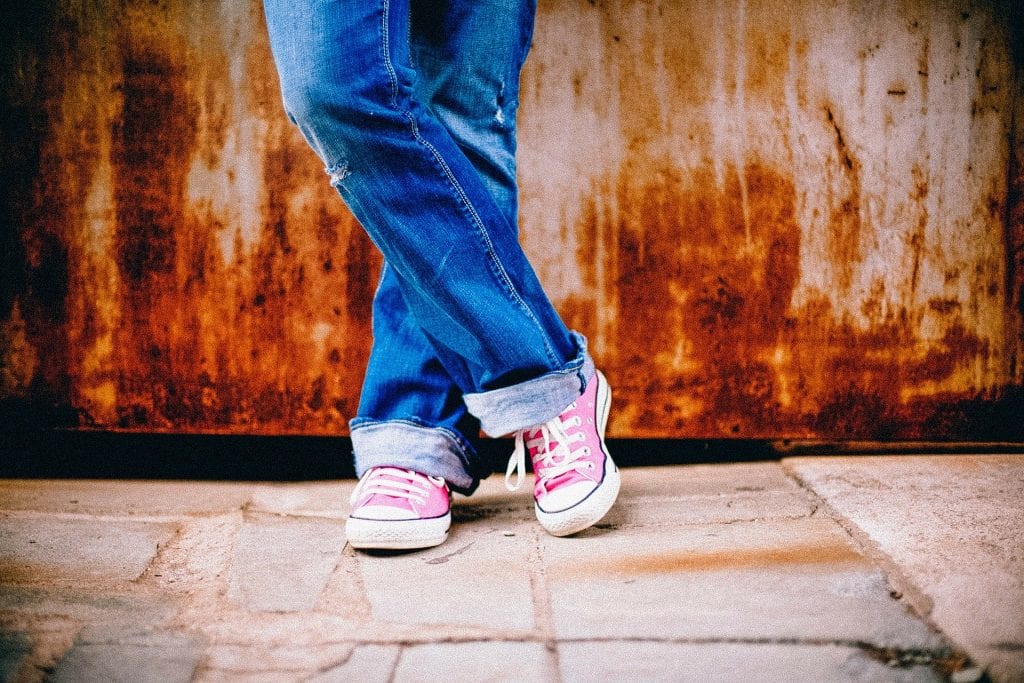One of the surprising take aways that I have from living through this pandemic so far is the vastly different ways that our children are processing the whole experience. For example, in March when I told our first grader about not being able to go to school or visit with people for awhile, he said, “That’s sad. I like school and my friends. This virus needs to go away.” When I told our 13 year old about it, he said, “Mom I already know a lot about the Coronavirus. I’d like to talk with you sometime about some articles I’ve been reading about the timeline of vaccine development.” Um…okay. In that initial conversation, it hit me immediately that our teenager was going to process this on a completely different level than our elementary age kiddo.
Even though Louisiana is in Phase 1, our family lifestyle and routine are completely different from what they were before COVID-19. After a few months, here are some things I’ve observed about teen experiences and responses to living during a Pandemic.
- When so many people are in the house at the same time, some teens especially need more alone and privacy time to recharge. Even though our teen is pretty extroverted, with so many more of us at home at the same time, he asked to go to his room more often to listen to his own music or chat with friends on his phone. We let him do this because he really needed it, and he would come out more energetic and refreshed. As parents we set phone limits, but we feel like we also need to respect his need for more independence.
- Some teens will also want to talk a lot more than usual! Some teens also will want to talk with their parents or siblings much more than they typically would because their typical in person outlets of school, sports and some summer camps have changed. They want someone in person to listen. Since these times can be fleeting, they are also precious.
3. They need to keep as many friendship and group connections going as possible. We are so thankful for the youth group at our church. Every Wednesday and Sunday they have a Zoom where they either have a study or play games. He looks forward to those every week, and it gives him a routine time to talk with some of the same friends and laugh. We also had extended family Zooms, and he was able to keep in touch with lots of friends from school. Community is a huge part of teen identity, and it is crucial to keep this going.
4. They are much more aware of the in-person milestones they are missing with friends than younger children. While younger children are mostly focused on the here and now, older children and teens are distinctly aware of what would be happening if large groups and gatherings could be happening like usual. Our teen loves going to LSU baseball games, being on the spring swim team, and participating in lots of other extracurricular activities. Since we have a younger teen, we didn’t have the experience of missing or altering graduation or prom plans. Teens look forward to these events, sometimes for years, while younger children can be less aware of what they are missing unless they already knew it was on the calendar before COVID-19. To help with this, we talked with our teen about what would have normally been happening, and what he can do this spring and summer instead.
5. Teens often understand a lot more than we might think they do. One of the things I was most dreading telling our boys was that they wouldn’t being going back to school in person this year. Knowing that they would probably have very different responses, I told them at different times. Our first grader said, “That’s so sad. I love school.” He wanted to cuddle and talk about it some more. When I told our teen, he said, “Mom I was expecting that. Going back to school wouldn’t even be safe right now. Can I have a snack?” The things I was worried about telling him were things he was already anticipating. And while teens can have a huge variety of responses to events being cancelled, they often know and understand a lot more than we as parents might expect.
6. When our teen wanted to talk about COVID-19, we listened. Sometime he would say, “Hey, can we talk about something for a minute?” and then ask specific questions about the kinds of plans we can make right now, or about the Coronavirus. I felt like if he had questions about it, as parents we needed to listen and be fully present. There is no telling when we might enter a monosyllabic phase of adolescence, so when he wants to talk about it, we’ll listen. We also reminded him that while this feels like it is going on indefinitely, it will be over at some point, and we will be so grateful when it is. Lots of teen also have a spirit of resilience and hope that is inspiring as adults to experience. And since it won’t be too long until he starts high school, we are thankful for the extra time at home together as a family.


















